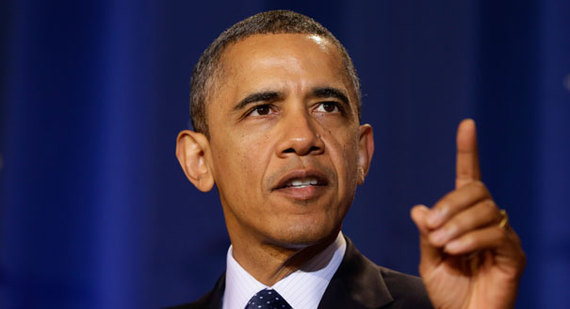
With the President's recent return from his diplomatic trip in Asia, and the year about to end, Barack Obama is getting ready to sign what many call "one of his biggest political decisions of his presidency."
In Washington, there are rumors that as early as this week, the President could be taking executive action in regards to immigration.
And even before the President makes a final decision on the matter, Republicans have been attacking the President on his decision to temporarily reform the country's immigration system, accusing him of abusing his presidential powers and calling the executive orders "unconstitutional."
Further, some Republicans within the party have said that they would be willing to put the government's budget for 2015 at risk, and some have even alluded to a possibility of shutting down the government, if the president decides to act on immigration.
This would be a grave and dangerous error, since such actions would put our country's economy at risk, as well as the credit of the United States.
Lately, Republicans have been using the constitutional argument, day after day, in hopes that the American people will listen.
However, what Republicans fail to mention, is that many former-presidents, many of them Republican, have used executive actions as a method to temporarily reform our country's immigration system.
In 1987, President Reagan used the power of executive action to alleviate the country's immigration standards to approximately 200,000 Nicaraguans in exile who were looking to flee their country's communist regime at the time.
In 1990, President George H.W. Bush signed an executive order alleviating our immigration system for Chinese students who were studying in the United States and potentially ran the risk of being persecuted back in their country of birth.
And if that wasn't enough, in 2001, President George W. Bush signed an executive order, granting an immigration extension to approximately 150,000 Salvadorians, after their country was hit with an earthquake.
Even though it's likely that Obama's executive orders will benefit a much bigger number than the ones previously mentioned, the argument that an executive order on immigration is unconstitutional, is clearly false, no matter the amount of people who will benefit.
At the end of the day, history speaks for itself; the Executive Branch of the United States carries the power of reforming certain parts of our immigration system, as long as such changes aren't permanent.
If Republicans are so desperate to stop President Obama from using his constitutional powers to solve a problem where Congress has failed to act, they have the power to do so. Its actually very simple: Do your job and pass Immigration Reform.
Time and time again, Republicans have failed to understand that when they attack the President on immigration, it's not Obama they are attacking, but the Latino Community instead.
So when 2016 comes around and presidential candidates from both sides of the aisle are trying to persuade the "Latino Vote," don't be surprised that Republicans will not only loose it, but they'll be loosing any chance they had of taking The White House as well.